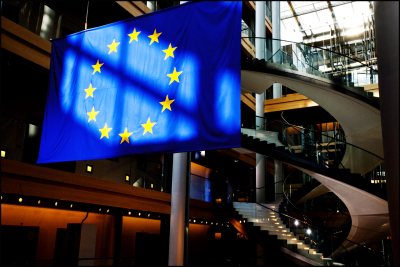Monday 6 February
President Putin signs a law according to which the tax returns and asset declarations of Russian MPs and senators will no longer be published online (technically they will be published “without private data attached”, ie. in anonymised form, which will render them useless for scrutiny purposes). In December last year Putin already relieved government officials of the requirement to publish this information.
Officially, the abolition of these measures, which are designed to prevent corruption, is for national security reasons. The reality, of course, is that EU member states, other Western countries, civil society, and the media have used the public income and asset declarations in order to help identify assets that could be subjected to sanctions.
Although clearly a retrograde step, the impact of the new measure is likely to be limited. According to a 2019 poll cited by the Moscow Times, three-quarters of those surveyed thought Russian civil servants declared only a “small” or “negligible” proportion of their assets and income.
Tuesday 7 February
Renew Europe group leader in the European Parliament Stéphane Séjourné backs calls for the setting up of an EU ethics body with the power to “harmonise ethics rules in the institutions” and with “the tools and resources to accomplish its mission”, according to Politico Playbook.
Transparency International EU has long been calling for the setting up of such an interinstitutional ethics body, and European Commission President Von der Leyen has promised on several occasions to come forward with a proposal – most recently in the wake of the Qatargate revelations.
But so far, neither the Parliament nor the Commission has shown the political will necessary to make progress. A resolution adopted by the Parliament in 2021 gave broad backing to the idea of an ethics body, but without granting it the requisite powers. The Commission has seemed content to let the idea die a quiet death.
At its plenary session in Strasbourg next week the Parliament will once again debate the issue. This may well be the Parliament’s last chance to get the ethics body back on track before the 2024 EP election campaign gets underway – a campaign in which Qatargate is likely to figure prominently.
But while a common ethics body has the potential to significantly improve the integrity framework of the EU institutions, MEPs don’t need to wait for it to be operational to put their own house in order. Most of the reforms necessary to prevent a recurrence of Qatargate can easily be implemented by the Parliament using powers already at its disposal.
Wednesday 8 February
Parliament President Metsola discusses a revised version of her 14-point Qatargate reform plan with the leaders of the Parliament’s political groups. Although the document title talks about “strengthening the integrity, independence and accountability” of the Parliament, the discussion itself takes place behind closed doors, and the document is available to the wider public only because it has been leaked. That is no way to run a process designed to make the Parliament more transparent.
The new version contains some improvements, such as the introduction of regular awareness raising campaigns for MEPs and staff on their ethics obligations. An attempt by the EPP group to use Qatargate as an excuse to crack down on NGOs (never let a good crisis go to waste, right?) fails to make the grade.
But there’s also some backtracking.
In the new version, the proposal for a cooling off period of up to 24 months for former MEPs before they can lobby their former colleagues has been reduced to six months. That renders the provision almost meaningless. The first six months of a new parliamentary term rarely see any significant legislative action. Instead, MEPs are focused on internal housekeeping issues and on the appointment of the new European Commission.
If Parliament is serious about preventing former MEPs from monetising their parliamentary knowledge and networks for private or professional gain, a 2-year cooling off period is what’s needed.
Thursday 9 February
Dutch daily newspaper NRC leads with an investigation into attempts by foreign governments to influence the European Parliament by means of gifts, perks and cash. It concludes that the Parliament’s lack of clear rules on MEP side jobs and the absence of meaningful enforcement create the perfect climate for autocratic states such as Qatar, the UAE and Bahrain to seek to influence the decision-making process by wooing individual MEPs.
One such MEP is Radosław Sikorski, a Polish deputy who has lashed out at Transparency International EU for the way we have reported on his income from side jobs, despite the fact that we used his own published official declaration of financial interests as a basis.
NRC found that Mr. Sikorski has made on average two all-expenses paid trips to UAE per year. They also looked at the website of the Polish parliament, where Polish MEPs have to provide more detailed financial information than in Brussels, and found that he receives 93.000 EUR per year to advise the UAE government on its Sir Bani Yas forum. That information cannot be gleaned from his EP declaration, because of the way it is structured.
Mr. Sikorski retorts that he has been fully transparent about this UAE income on the Polish website, and that he didn’t declare his trips to the Emirates because they weren’t part of his work as an MEP.
Is there anyone who really believes that UAE would have pampered Mr. Sikorsi in the way it has had he not been an MEP?
The Parliament is now working to strengthen its rules on financial interest disclosure and improve enforcement. That’s a big step in the right direction. But the most effective way to prevent (the perception of) influence buying is to ban the holding of paid side jobs altogether. MEPs receive a generous full-time salary for what should be a demanding full-time job. Why do they need to earn more and increase risks of conflicts of interest?
Friday 10 February
It seems that Mr. Sikorski’s other side job – unpaid this time – is to complain to NGOs and journalists about reporting the facts. Politico Europe Playbook recalls that Mr. Sikorski sent a furious DM to its reporter when she had the temerity to quote an old Transparency International blog post that mentioned the income from side jobs that he himself had reported to the Parliament, just as he had complained to our office at the time.
Transparency International EU runs a transparency website called EU Integrity Watch, which keeps tabs on, among other things, the financial interest declarations of MEPs. This information is drawn directly from the Parliament’s own website, which in turn publishes information provided by MEPs themselves. This declaration is submitted on the Member’s honour, and the form notes that “statements included in this declaration are made under the sole and Personal responsibility of the member”. We regularly analyse the data provided by MEPs, and provide our analysis. Mr. Sikorski says the data we used for him was wrong. But while MEPs can update their financial interest declarations, and are actually required to do so when there’s new information to report, that doesn’t change our analysis of information that has been published in the past. Making sure financial interest declarations are correct isn’t our job – that’s the job of MEPs themselves and, in the final resort, the Parliament.




